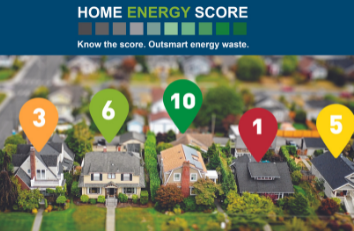Related News
Related News
-
EWEB Board adopts 2026 organizational goals to guide utility priorities
At the January public meeting, EWEB adopted a new set of organizational goals for 2026, providing direction for our work priorities in the year ahead.
Find Out More -
Cold temperatures this week drive highest electricity demand of the winter so far
Frosty conditions in Eugene this week have driven electricity demand to the highest levels so far this winter as heaters strain to keep homes and businesses warm.
Find Out More -
Sustainability Snapshot - Celebrating Energy Efficiency Projects in the Community
Sustainability Snapshops highlight impactful projects completed by EWEB's Customer Solutions department, as a way to celebrate the meaningful work happening behind the scenes.
Find Out More -
Sustainability Snapshot - Ideal Steel July 2025
Our second Sustainability Snapshop highlights a project where EWEB helped a local industrial warehouse upgrade over 1,000 flourescent lights to new efficient LEDs.
Find Out More -
EWEB opens applications for 2025 Electric Mobility Community Grant
The Eugene Water & Electric Board is now accepting applications for the 2025 Electric Mobility Grant, reinforcing EWEB's commitment to sustainability and cleaner transportation.
Find Out More -
Greenpower subscribers vote to award Greenpower Grant to SquareOne Villages
The Greenpower Grant, funded solely by voluntary customer subscriptions, supports local sustainability projects.
Find Out More -
Energy conservation could offset large portion of growth in power demand
Preliminary results of an EWEB study indicate that cutting back demand can contribute to maintaining a reliable, affordable energy supply.
Find Out More -
Rising Together: Female operation staffers begin industry mentorship program
One week into Women's History Month and just before International Women's Day on March 8, three women in EWEB leadership roles embarked on a 10-month-long journey of mentorship, fellowship, and professional development.
Find Out More -
EWEB and BRING cook up new ways to help Eugene businesses save energy
Businesses can cut energy costs with EWEB’s free Energy Assessments and efficiency programs. Plus, for a limited time, BRING is offering $1,000 rebates for qualifying upgrades—apply by Feb. 28!
Find Out More -
EWEB Board Adopts 2025 Goals
Goals focus on supporting low-income community members and renters, while improving operational efficiency.
Find Out More -
PNW Lineman Rodeo raises $85,000 for Oregon Burn Center
EWEB line techs are proud partners and participants in the rodeo fundraiser every year.
Find Out More -
Eugene residents share energy and water saving tips
From blocking a draft to replacing your heating system, each action you take can save water and electricity.
Find Out More -
Cold Weather, Higher Energy Bills: Why It Happens
Eugene is experiencing some of the coldest temperatures we've seen this winter. When temperatures drop into the 20s, heating systems must work much harder to keep homes warm. Even if you leave your thermostat untouched, your heating system will consume more energy to maintain a steady indoor temperature as the outdoor temperature plummets.
Find Out More -
EWEB Board Approves 2025 Budget and Rate Increases to Fund Critical Infrastructure Investments
EWEB’s budget is less than initially projected while still addressing aging infrastructure and rising costs to ensure reliable utility services for Eugene.
Find Out More -
Celebrating the new Currin Substation
After two years of rebuilding the substation, EWEB honors the Currin Substation with a ribbon-cutting.
Find Out More - Show More
Positive Outcomes from Remote Home Energy Assessments
September 02, 2021

EWEB's Home Energy Score (HES) Program has concluded for 2021 with 70 property owners and tenants participating in energy audits. The program, which is part of a national energy efficiency program with the Department of Energy helps tenants, rental owners, and limited-income property owners better understand the energy and water usage in their properties and possibly help lower monthly utility bills.
Once again this year, University of Oregon student interns performed the assessments, and, despite pandemic restrictions, achieved a 59% increase in homes assessed per employee compared to 2019. For health and safety reasons, assessments were conducted remotely and may have been a factor in the increased response rate as it is convenient for the residents to participate.
Program Leader Matt Lutter created an assessment tool to accommodate the remote work, aligning with the Department of Energy's official Home Energy Score tool. "Even with data limitations from the work being done remotely, we concluded that it was accurate enough to be effective and helpful for residents and property owners," concluded Lutter.
One student intern created a webpage for the City of Eugene focused on Home Energy Score. She then conducted research into city sustainability efforts and conducted interviews with local businesses. The student has subsequently been appointed to the City's Sustainability Commission by the City Council and is working on a sustainability-focused internship. She credits both opportunities to her experience working with UO's Score program.
Since the program began in 2017, 618 homes have received Home Energy Scores and 154 energy efficiency improvements have been made to homes. In total, property owners have invested $555,000 in upgrades and taken advantage of $106,000 in rebates from EWEB. These projects save 211,000 kWh per year, roughly equivalent to the carbon sequestered by 180 acres of forest. In total, eight homes have converted away from fossil fuels for heating. Carbon savings calculations vary, but the Score program has resulted in an annual carbon savings of around 23,000 pounds of C02e.
This program is made possible through a grant from The City of Eugene. If you are interested in a home energy assessment, please watch for the program's reopening in early 2022.
Are you renting your residence or do you own a rental property? See our Rental Property Resources for more information about improving your energy efficiency.

